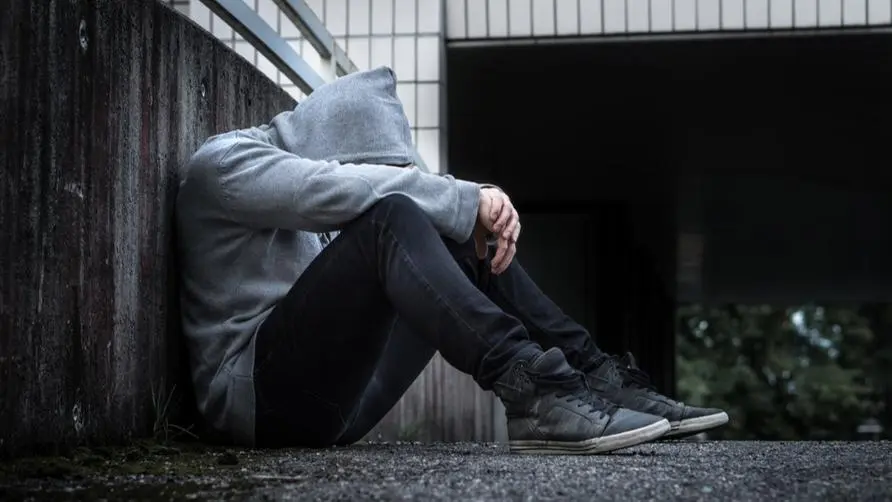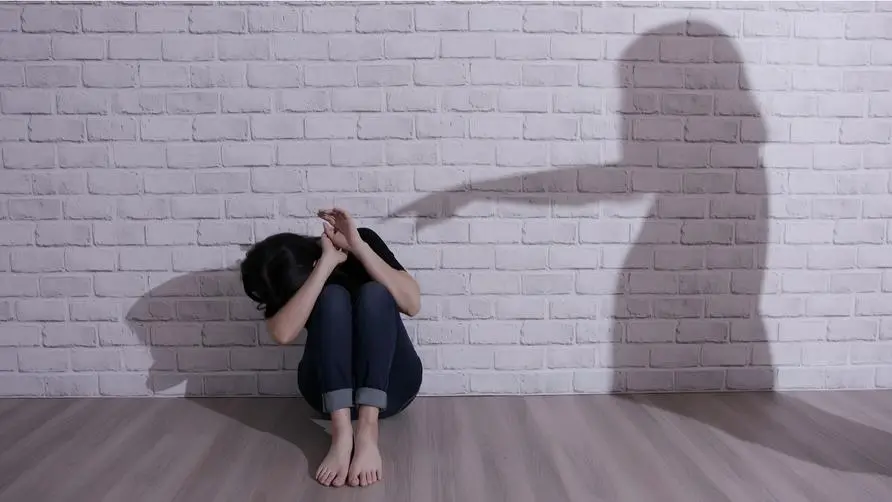Ai Cheng fell to his death! Is depression a warning sign for suicide? Be alert if relatives and friends around you show "3 major signs"

It was shockingly reported that artist and singer Ai Cheng died after falling from a building today (17th), causing shock and regret from all walks of life. In the past, media reported that Ai Cheng suffered from depression or bipolar disorder, resulting in relatively unstable emotional and mental conditions. In fact, suicide is the eleventh cause of death in Taiwan. How to provide correct and timely assistance and treatment when people around you send out signs or messages of suicide is an important knowledge that must be strengthened for the mental health of Taiwanese people.
Is there a connection between depression and suicide? 8 types of people are more likely to commit suicide
Is depression more likely to commit suicide? Does suffering from mental illness increase the risk of suicide? The Taiwan Ministry of Health and Welfare’s “Suicide Prevention and Treatment Series Handbook” points out that suicide may be caused by multiple reasons, and not all patients with mental illness will want to commit suicide. However, mental illness is indeed one of the risk factors for suicide; about 84%-100% of suicide death cases have received medical treatment and have a psychiatric diagnosis before their death, mainly caused by depression, drug abuse, alcoholism, or psychosis. etc.
According to statistics, people with the following reasons are more likely to commit suicide: those with mental illness (such as depression, alcohol addiction, personality disorders); physical illness (such as chronic disease, pain, AIDS); those who have attempted suicide, family history of suicide, History of alcoholism or mental illness; divorced, widowed or single; unemployed or retired; and those who experienced grief in childhood.
However, the U.S. Centers for Disease Control and Prevention (CDC) reminded in a health education column that the cause of depression is still inconclusive and may be caused by a combination of genetics, biological reactions, environmental and psychological factors. There are at least 6 factors in the living environment that will increase the chance of depression. People should pay more attention to whether their relatives and friends have the following physical and mental conditions or are in similar situations:
A direct blood relative has suffered from depression.
Experiencing a traumatic or stressful event, such as physical or sexual abuse, the death of a loved one, or financial problems.
Experiencing major life changes, such as original plans being interrupted and interfered with by various factors.
Suffering from various medical conditions such as cancer, stroke, or chronic pain.
Take certain medications. If you have any doubts about whether a drug causes depression, you should consult your doctor for clarification.
Use of alcohol or addictive substances.
Do suicidal thoughts only occur in “a moment of thought”? Harvard: 2 adults experience suicidal ideation in “less than 5 minutes”
Although some suicide behaviors are traceable, there are still a large number of suicides who decide to commit suicide in a sudden thought. According to information on the public website of the Harvard School of Public Health, based on a random interview with suicide survivors, the following statistical results were found from the occurrence of suicidal thoughts to the actual suicide behavior:
24% of subjects experienced suicidal thoughts in less than 5 minutes.
24% of subjects experienced suicidal thoughts within 5-19 minutes.
23% of subjects experienced suicidal thoughts within 20 minutes to 1 hour.
16% of subjects experienced suicidal thoughts within 2-8 hours.
13% of subjects experienced suicidal thoughts for more than 1 day.
The Harvard School of Public Health commented on the study. Many suicides take action within 24 hours of a specific experience. The triggers include disputes with family members, financial factors, interpersonal relationships, etc.; about 75% of suicides occur at home. . Therefore, suicidal behavior usually occurs very quickly and is unpredictable, and the underlying cause of suicide is more likely to be the result of the long-term accumulation of multiple social, economic, and interpersonal difficulties.
How to help friends and family avoid suicidal thoughts? Remember “Ask once, respond twice, refer three times”
How can ordinary people help relatives, friends or family members who are suicidal to avoid such regrets? The Taiwan Ministry of Health and Welfare’s Department of Mental Health stated in a public briefing that relatives and friends should be alert in advance if they have three major signs: abnormal emotional reactions, clear suicide plans, or sudden entrustment of important things. It is recommended to adopt the principle of “ask once, respond twice, refer three times” to provide appropriate encouragement and assistance to relatives and friends when they need care most:
One question: Ask proactively to let relatives and friends feel cared for. For example, have you felt unhappy recently? Do you have any thoughts that you can’t think of? Do you feel that your life is meaningless, worthless, and no one cares?
Second response: Listen patiently and let your relatives and friends know that you are not alone.
Three referrals: If you are an important relative or friend, you should continue to provide support and care. In addition, you can call the peace-of-mind hotline “1925” to provide 24-hour free psychological counseling services; the mental health centers in various counties and cities also provide free psychological counseling services, so the public can take advantage of them.
The Department of Mental Health of the Taiwan Ministry of Health and Welfare reminds that when an individual’s depression reaches a certain level and presents an obvious sense of helplessness and despair, suicidal behavior is most likely to occur. It is urged that once you discover any mental illness, you must not hide the illness and seek medical treatment, and seek the assistance of a psychiatrist or counseling psychologist in a timely manner, which can help improve your physical and mental condition and reduce the occurrence of desperate thoughts and suicidal behavior.
Source of health education information:
Further reading:





